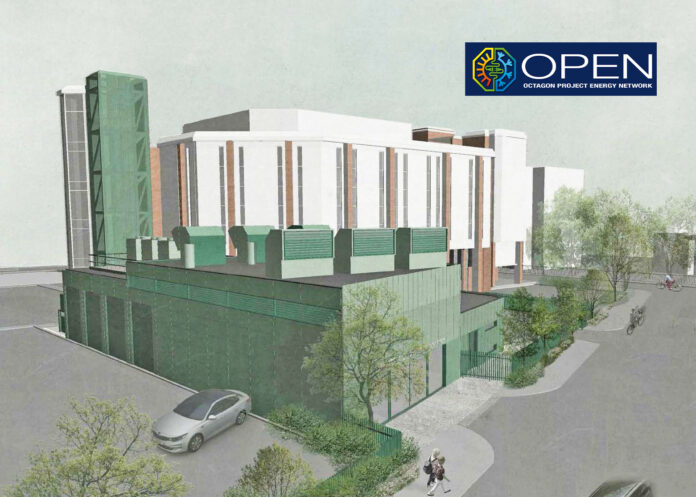A funding award of over £14m has been announced for a community-driven heat network project located in Manchester City Centre.
The Octagon Project Energy Network (OPEN) is being undertaken by Manchester Energy Partnership Limited (MEPL), a joint venture between Sustainable Energy Supplies Limited Ltd, and Electricity North West (Construction and Maintenance) Ltd.
The project also brings together key organisations in the region committed to reducing carbon emissions, creating employment opportunities and contributing to the overall wealth of the city. MEPL has been working with Manchester City Council and the Greater Manchester Combined Authority for over 7 years to create the network as part of plans to bring commercial vibrancy, growth and regeneration to the city’s strategic Southern Corridor.
Lord Callanan, Minister for Climate Change and Corporate Responsibility, said:
“Changing how we heat our homes is a vital part of eradicating our contribution to climate change by 2050. Establishing this heat network across central Manchester is another step forward in rolling out these cutting-edge low-carbon technologies.
“By moving away from a reliance on fossil fuels for heating, key public buildings in the city centre along with hundreds of residents and businesses will see the benefits of a project that can cut energy bills as well as carbon emissions.”
The project area will cover 5 sq. km and plans to distribute locally generated, low carbon electricity, heat and cooling to a range of buildings including Manchester University NHS Foundation Trust, major University buildings, a mix of over 1000 social housing units, student accommodation blocks, and commercial organisations.
The 25 diverse stakeholders identified for phased connection will benefit from a benchmarked reduction of up to 15% in energy costs, lower energy consumption, reduced capital expenditure, lower on-site maintenance, and reduced carbon footprint.
Early estimates suggest that connection to the OPEN will support average emissions reductions of 10% for the network, and replace 22% for at least one major off taker, based on present carbon emission levels.
Advanced remote monitoring of each individual off-taker’s consumption will also be incorporated to enable the intelligent detection of any efficiency issues so that the network can respond, balance demand and match the heat and power requirements of each stakeholder. This will be combined with thermal and battery storage.
MEPL will initially construct close to 10Mw of electricity from Combined Heat and Power (CHP) generation, which will be combined with Photovoltaic Solar Panels and Air Source Heat Pumps throughout the network. The CHPs are designed so that the energy source can be changed in response to advancements in sustainable technologies over time.
This forms part of the project’s future network development strategy, which incorporates both retrofit opportunities to reduce off-taker consumption together with the introduction of emerging sustainable technologies to the generation centre. The project also plans to be one of the UK’s first local energy centres to benefit from the inclusion of a 20% mix of Green Hydrogen with natural gas in 2024, further reducing carbon emissions long term.
Phase 1 of the network will satisfy a heat demand of 75 GWh and an electricity demand of 84 GWh, with the estimated Phase 2 expansion brining heat demand to 96 GWh and electricity to 126 GWh.
Earlier central government support was provided to the OPEN through the Heat Networks Development Unit (HNDU), which assisted with the early-stage planning of the network.
Richard Everton, Chairman of the Manchester Energy Partnership said:
“I am delighted that the tenacity and single mindedness of the MEPL team has turned what was a personal “pipe-dream” into a financially viable and practical reality for the city of Manchester. The support received from both the local authority and central government is proof that multiple agencies can work together with the private sector to bring about infrastructure projects that will benefit communities, in pursuit of fuel efficiency and to reduce carbon emissions in our major cities. Manchester is taking a strategic lead in achieving “Net Zero North West.”







